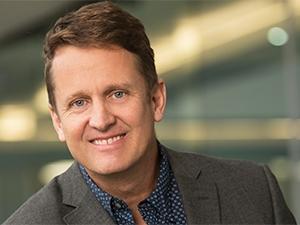
The role of an accountant has changed drastically with the advent of technology. The accountant of today and more so of the future will need to embrace technology and see old problems and processes through new eyes.
So says Kantha Naicker, MD of Evolve Accounting, who adds digitisation means accountants can drive transformation for their customers, changing from the existing ways of problem solving and presentation of information, to better ways of analysing data and providing improvements in terms of cost and time.
"While I believe it is unlikely that accountants would ever be completely replaced by technology such as financial accounting software, technology will revolutionise this vital industry. The fact that accountants are required to keep their knowledge current via regular continuous professional development in order to remain accredited, means they should be evolving all the time," she explains.
Accounting software automates those processes previously requiring time and human intervention, adds Naicker.
"There are fewer errors made by such software, when drawing in bank statement information for example in a cash book. However, with depending on what task has been automated and the extent to which the process has been tested, accountants can only place reliance on the automated task if it's been verified," she points out.
General tax practitioner and director of SGAFC group Sean Goss says in his column it is a common misperception that accounting software can and will replace an accountant. Accounting software is a means to an end, not an end in itself.
"It is dangerous for small business owners to assume that they will not require regular advice from a qualified accountant or tax adviser. All accounting software utilises double entry, despite it not appearing so. Difficulties are encountered when accounts have to be structured in a proper manner," reveals Goss.
Anton van Heerden, executive vice-president and managing director of Sage South & Southern Africa, says financial accounting software has been with us for three decades or more, and it has yet to replace the role of the accountant.
"Accounting software has streamlined much of the work accountants used to do to capture transactions accurately, balance the books, and make manual projections. The role of the accountant has thus evolved from updating ledgers and doing manual calculations to providing financial advice to the business," he explains.
Accountants have the tax and financial expertise to analyse numbers using accounting software and help the business to identify financial risks, optimise tax payments and find ways to improve profitability, Van Heerden points out.
Challenging the idea that accountants could in future be replaced by financial accounting tools, Van Heerden says the accountants' real skill isn't just about balancing the books - it is about looking at the finances and understanding of what they mean for the business and its future.
"A modern, integrated business system that draws together payments, payroll & HR, and accounting is also a platform for more efficient ways of working. With accurate and up-to-date payroll and HR data available, employees can use employee self-service to access information about benefits, payroll, leave, and expenses," he asserts.
Kevin Dancey, past president and CEO of the Chartered Professional Accountants of Canada, says accounting professionals have a huge role to play in harnessing technology for better and more informed decision-making. This technology ranges from big data to analytics to block chain technology to artificial intelligence.
"Professional accountants in the industry face particular challenges to adapt as finance functions evolve from their traditional role as financial controllers toward more rounded business advisers that are closely involved in strategy development and decision-making. Professional accountants need to adapt so they can embrace the new capabilities offered by technology," says Dancey.
Share